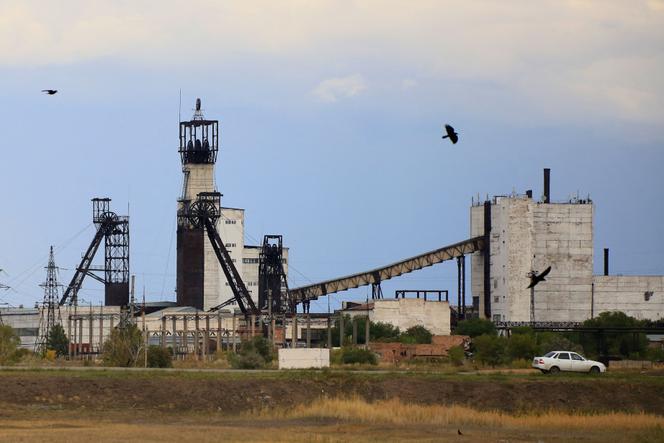


Essential to the energy transition, rare earths like scandium, lanthanum and cerium are the oil of tomorrow. Ever since the West began to realize its excessive dependence on China, it has been stepping up its diversification strategies. "To secure its resources, the European Union [EU] is increasingly turning to countries such as Canada, Australia and Kazakhstan," summarized Thomas Gomart, director of the French Institute of International Relations.
On Saturday, October 28, the death of at least 45 miners at an ArcelorMittal site was a tragic reminder of the vast underground wealth of this remote Central Asian country. On November 1 and 2, French President Emmanuel Macron will visit Kazakhstan and Uzbekistan. The motive is "to support both countries in their reform efforts," stressed the president's office, as well as strengthening ties "in the economic sphere, particularly in terms of energy and supplies."
Alongside some 15 business leaders, including from EDF, Suez and Orano (formerly Areva), as well as the Geological and Mining Research Bureau, Macron promised "announcements of contracts." In particular, Paris is in line to participate in the construction of Kazakhstan's first nuclear power plant. Access to critical metals will also be on the agenda.
Since gaining its independence in 1991, the former Soviet Union country has boasted of having "all the ores and elements on Mendeleev's table" in its subsoil. According to the United States Geological Survey, it is the world's leading producer of uranium (with 40% of global production), the second largest producer of chromite (13%) and the fifth largest producer of cadmium (5.9%). It is also reported to have abundant rhenium, zinc and manganese mines.
However, it is difficult to assess the full extent of its reserves. "The economy is somewhat opaque," summarized Agathe Demarais of the European Council on Foreign Relations (ECFR), an independent think-tank. This is because a large part of the infrastructure and mining assets date back to the Soviet era and because the major Kazakh clans close to the government share part of the resources. Western executives working in the sector are quick to confirm, on condition of anonymity, that corruption is not uncommon.
Despite this, the country is one of the most attractive in the region for foreigners, not least thanks to its reform efforts. "Since its independence, it has been able to exploit its hydrocarbon fields using international companies with the technical skills required to do so," explained Dominique Menu, former Central Asia head for BNP Paribas, who writes regularly about the region.
You have 55% of this article left to read. The rest is for subscribers only.
